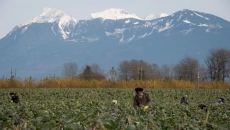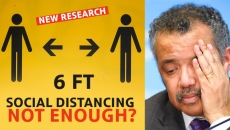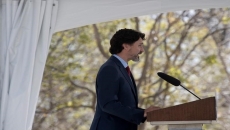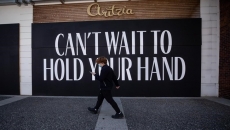Prime Minister Justin Trudeau waded into the foreign policies of Israel and China on Tuesday, expressing concerns over separate but controversial positions that he says undermine peace in both places.
Trudeau denounced Israel's plan to annex parts of the occupied West Bank. And he said he has expressed Canada's disagreement over the proposed annexation directly to Israel's Prime Minister Benjamin Netanyahu and Benny Gantz, the country's "alternate" prime minister under a power-sharing agreement.
"I've been very direct with the Israeli leaders," Trudeau said.
"We deplore such actions, which are going to delay any prospect of lasting peace in the Middle East. So, we should be working while respecting the concept of dialogue. And we are very concerned."
Trudeau reiterated Canada's view on the conflict between Israel and the Palestinians — Canada favours a two-state solution and does not approve of "unilateral" actions by either side.
"I have highlighted both publicly and directly to Prime Minister Netanyahu and alternate prime minister Benny Gantz the importance of staying away from measures that are unilateral and our deep concerns and disagreement with their proposed policy of annexation."
He also called on China to engage constructively with the people of Hong Kong after Beijing imposed a new national security law that has fuelled widescale protests.
Canada, Britain, the United States and Australia have jointly denounced the new law as a violation of Hong Kong's freedom from Chinese communist interference.
Trudeau said Canada is concerned about its 300,000 citizens in Hong Kong "and millions of others who are fighting for justice and peace.
"We will continue to stand up for peace, for dialogue, for deescalation of tensions and for Beijing to engage constructively with the people of Hong Kong," the prime minister said.
On Monday, a Canadian legal activist called on the federal government to grant asylum to democracy activists in Hong Kong and expanded settlement to those with links to Canada before China prevents them from leaving.
"Canada is a country that has always welcomed people around the world fleeing persecution and violence," Trudeau said Tuesday.
"We have a strong immigration system that looks at individual cases, looks at systemic challenges and responds to them."
Foreign Affairs Minister Francois-Philippe Champagne discussed the Hong Kong situation with U.S. Secretary of State Mike Pompeo and their counterparts in the "Five Eyes" intelligence-sharing group from Britain, Australia and New Zealand on Monday.
"They discussed our co-ordination on responding to urgent global challenge, including the PRC's unilateral and arbitrary decision to impose national security legislation on Hong Kong," Pompeo's spokeswoman Morgan Ortagus said on Tuesday.






